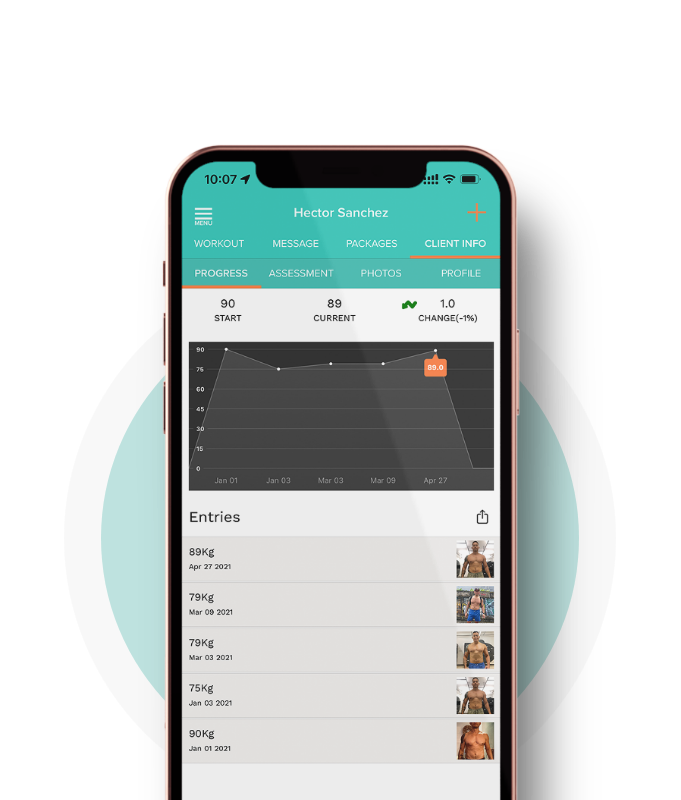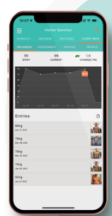Trust Issues? Here’s How to Find a Trainer Who Actually Knows What They’re Doing
Choosing a personal trainer can feel like online dating—everyone’s got a profile promising results, but who’s actually going to deliver? With so many trainers out there, how do you avoid the ones who overpromise and underdeliver? This guide cuts through the noise, giving you the straight talk on finding a trainer who’s worth your time, effort, and money.
Understanding Your Goals
Before you start scrolling through trainer profiles or wandering around the gym looking for a perfect fit, take a moment to think about what you want. Are you trying to lose weight, pack on muscle, boost your endurance, or just feel healthier overall? Knowing your specific goals will help you zero in on trainers who specialize in what you’re after. This isn’t about following the latest fitness fad; it’s about finding a professional who can guide you towards your personal version of success.
Assessing Trainer Qualifications
Now, let’s talk credentials. Sure, anyone can call themselves a personal trainer, but real expertise comes with proof. Look for trainers who have solid certifications from reputable organizations like NSCA, ACSM, NASM, ACE, ISSA, or NPTI. But don’t stop there. Ask about specialized certifications if your goals are specific—nutrition, sports performance, strength training, etc. And remember, experience counts. A certification might get a trainer in the door, but years of successfully helping clients like you is what makes them a pro.
Continuing education is another must. The fitness world is always evolving, and a trainer who’s committed to learning shows they’re dedicated to their craft. Ask them about recent courses they’ve taken or new techniques they’re exploring. A trainer who’s eager to keep growing is one who’s likely to push you to new heights as well.
Building Rapport and Trust
A successful trainer-client relationship isn't just about sets and reps—it’s built on trust, communication, and mutual respect. You want someone who listens, really listens, to what you’re saying. They should take the time to understand your needs, your lifestyle, and your goals. This isn’t a one-size-fits-all scenario. A good trainer tailors their approach to fit you, not the other way around.
Effective communication is key. Your trainer should be able to explain why you're doing a certain exercise, what it targets, and how it fits into your overall plan. You should feel comfortable asking questions and expressing concerns. This is your journey, after all, and you should always feel in the loop.
And let’s not forget the importance of a positive environment. You need a trainer who can keep you motivated and engaged. Someone who knows how to push you just enough to challenge you, without making you feel defeated. The right trainer makes you want to show up, even on the days when you’d rather hit snooze.
Avoiding Common Pitfalls
Not all trainers are created equal, and there are some red flags to watch out for. Beware of anyone promising quick fixes. Real, lasting change takes time and consistent effort. If someone’s telling you that you can lose 20 pounds in two weeks or get a six-pack by next month, walk away. They’re selling fantasy, not fitness.
Also, steer clear of trainers who dismiss your concerns. If you say you’re experiencing pain and they brush it off, that’s a problem. A good trainer takes your feedback seriously and adjusts the plan as needed. They’re also not trying to sell you on the latest gimmick or fitness fad. Quality trainers stick to evidence-based methods—they’re in it for the long haul, just like you.
Considering Cost and Value
Let’s talk money. Yes, personal training is an investment, but the right trainer is worth every penny. Rates can vary widely depending on location, the trainer’s experience, and how often you train. Urban areas tend to be more expensive, and trainers with specialized skills will charge more. It’s simple supply and demand. But don’t let cost be the only factor in your decision. Remember, you’re investing in your health, your body, your future. A trainer who can deliver real results is invaluable.
The Importance of a Trial Period
Before you commit, consider starting with a trial period. Think of it as a first date—you’re feeling each other out, seeing if there’s chemistry. This is your chance to see how the trainer operates. Are they punctual? Professional? Do they communicate well? Are their sessions engaging and challenging? A trial period gives you a taste of what working with them long-term would be like, without a full commitment right off the bat.
Additional Considerations
Training isn’t one-size-fits-all, and your choice of a trainer should reflect your personal preferences and lifestyle. Do you thrive in a one-on-one setting, or do you feed off the energy of a group? Are you more comfortable with online training sessions from the comfort of your home, or do you need the structure of in-person appointments? These are personal choices that will impact your success.
Don't underestimate the power of word of mouth. Ask friends, family, or even fellow gym-goers for their recommendations. And take a moment to check online reviews. Hearing about others’ experiences can provide valuable insights and help you avoid potential pitfalls.
Choosing the right personal trainer is more than just finding someone to count your reps. It’s about finding a partner in your fitness journey—someone who understands your goals, pushes you to your limits, and helps you become the best version of yourself. By knowing what to look for, asking the right questions, and trusting your instincts, you’ll set yourself up for success. This isn’t just about getting fit; it’s about finding a coach who can help you change your life.
By: Hector Sanchez
CEO, The Training Notebook




